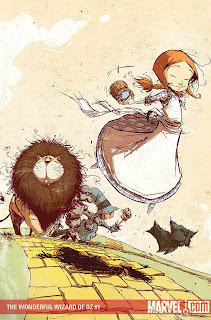You know the hardest part about doing creative work for a living? You guessed it: making good work even when your heart protests that it’s all dried up and wrung out, and your mind feels like an empty warehouse with a few bits of trash blowing through it. It’s a terrible feeling, and if you give it too much attention, you can sideline yourself for days, weeks, even years.
The poison usually lies in our expectations. “Oh, no! I have to do good work now. I can’t do good work. This sucks. Everything I write sucks. My best work is behind me and there’s nothing left but a long, demoralizing limp into the sunset, blahblahblah etc.” This is especially true for me when someone is paying me for my so-called sucky output. It’s bad enough that I don’t feel clever. Now I’m potentially a rip-off artist and a fraud, and the house of cards is about to come down. My parents will be so disappointed.
However, I have discovered a secret cure-all for this paralyzing anxiety: just do the work anyway. Or, as my sainted father likes to say, “Ain’t nothing to it but to do it.” Our minds are much like children. All it takes is a simple redirect into honest, no-expectations work and it’s shocking how quickly that nervous whining and fussing disappears. Just focus on the assignment (if you don’t have a formal assignment, give yourself one – write 500 words, write about something blue, whatever) and start doing the work. You are a rotten judge of whether your output is any good while you’re in the middle of writing, so stop worrying about it and concentrate instead on writing every silly thing that’s in your head about the color blue (or whatever).
This can be hard when people are watching you. One of my most uncomfortable client experiences was a brainstorming session with the principal of an agency who rolled his eyes, sighed in disappointment, and checked his email through the whole session. (He was a data guy, not a creative!) I wanted to run to the bathroom and cry, or quit the gig on the spot, but I didn’t. I took a deep breath (several deep breaths) and kept on brain dumping, even though this guy almost had me convinced that I was dumb as a sack of rocks and should just go home.
I’d like to say the story ended with hugs and congratulations all around. What really happened is that I delivered a site’s worth of solid, compelling copy to not much fanfare, collected my fee, and politely referred him to another writer for updates and future copy needs. I was ashamed to look at their site for months after it went live because I was sure my work was stinky. But the other day curiosity got the best of me, and I read through their entire (huge) site. And you know what? My copy rocks! I did really good work for that agency.
One of my favorite writing assignments to give is to tell my students to write the worst stories they can imagine. “Go home and write crap! Write the most cliched, garbage-y, terrible fairy tales you can imagine. Then bring your God forsaken, lumpen, monstrously dull creations to class next week and we’ll do something fun with them.”
Inevitably, they come back with hilarious, refreshing, totally wild stories. By the end of class, they’re energized, inspired, and fearless because they faced their worst fears and found that they were, like Rilke’s dragon, really princesses only waiting to see them once beautiful and brave.
The moral of the story: Just write. Stop worrying so much and write. Put one word after the other, trust in your native faculty for language and story, and write. You can judge it later, I promise.
It is not the critic who counts; not the man who points out how the strong man stumbles, or where the doer of deeds could have done them better. The credit belongs to the man who is actually in the arena, whose face is marred by dust and sweat and blood; who strives valiantly; who errs, who comes short again and again, because there is no effort without error and shortcoming; but who does actually strive to do the deeds; who knows great enthusiasms, the great devotions; who spends himself in a worthy cause; who at the best knows in the end the triumph of high achievement, and who at the worst, if he fails, at least fails while daring greatly, so that his place shall never be with those cold and timid souls who neither know victory nor defeat.
–Teddy Roosevelt

